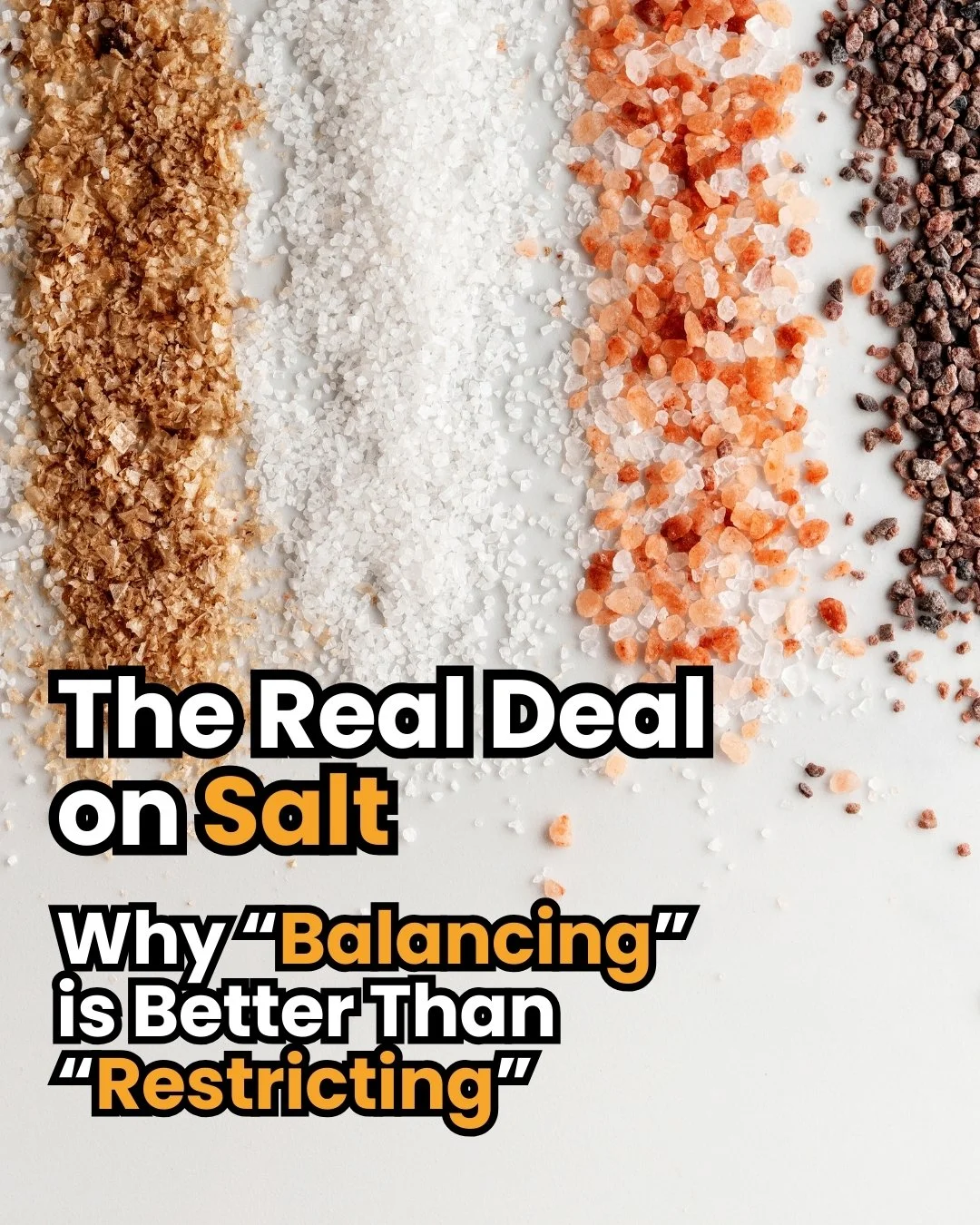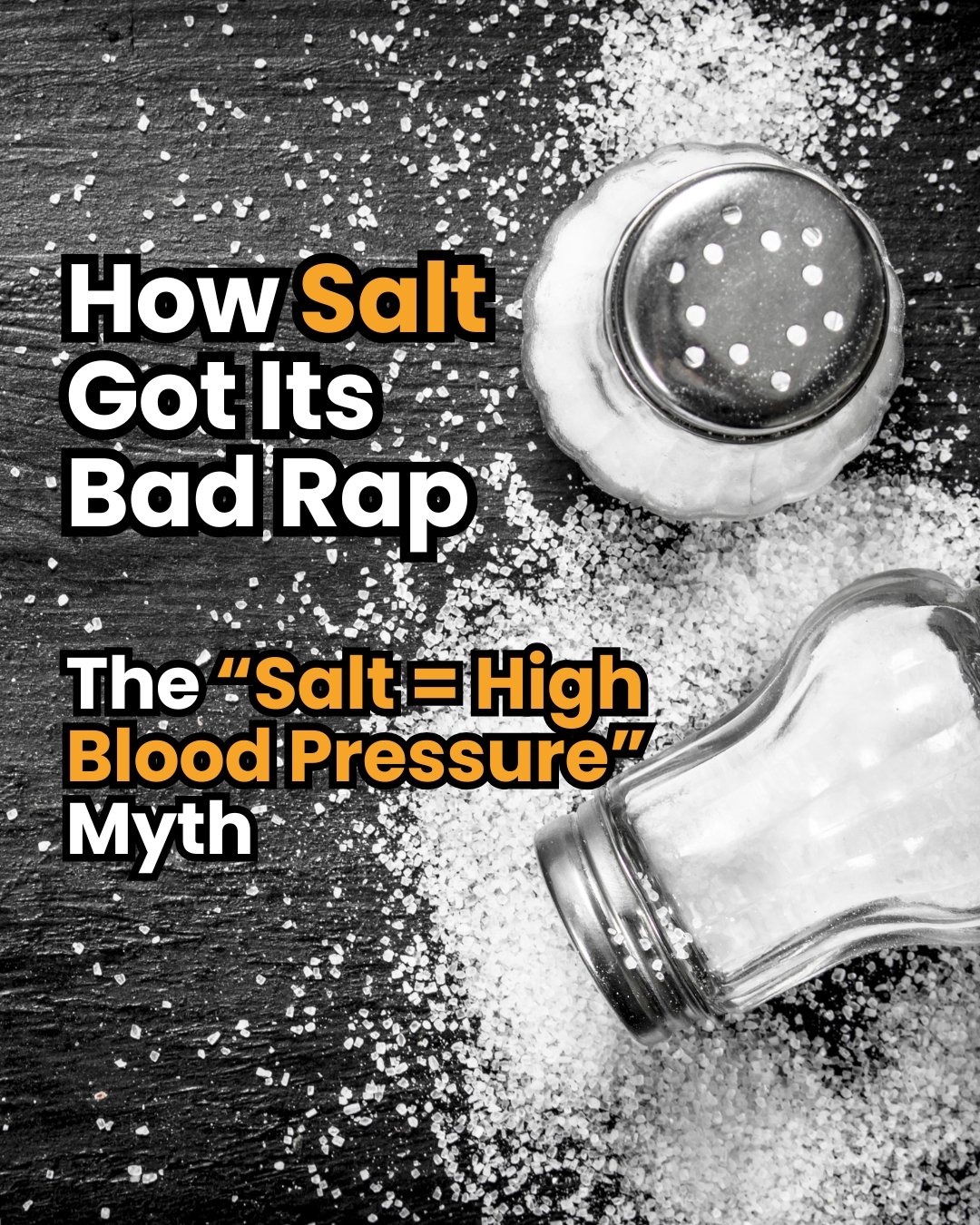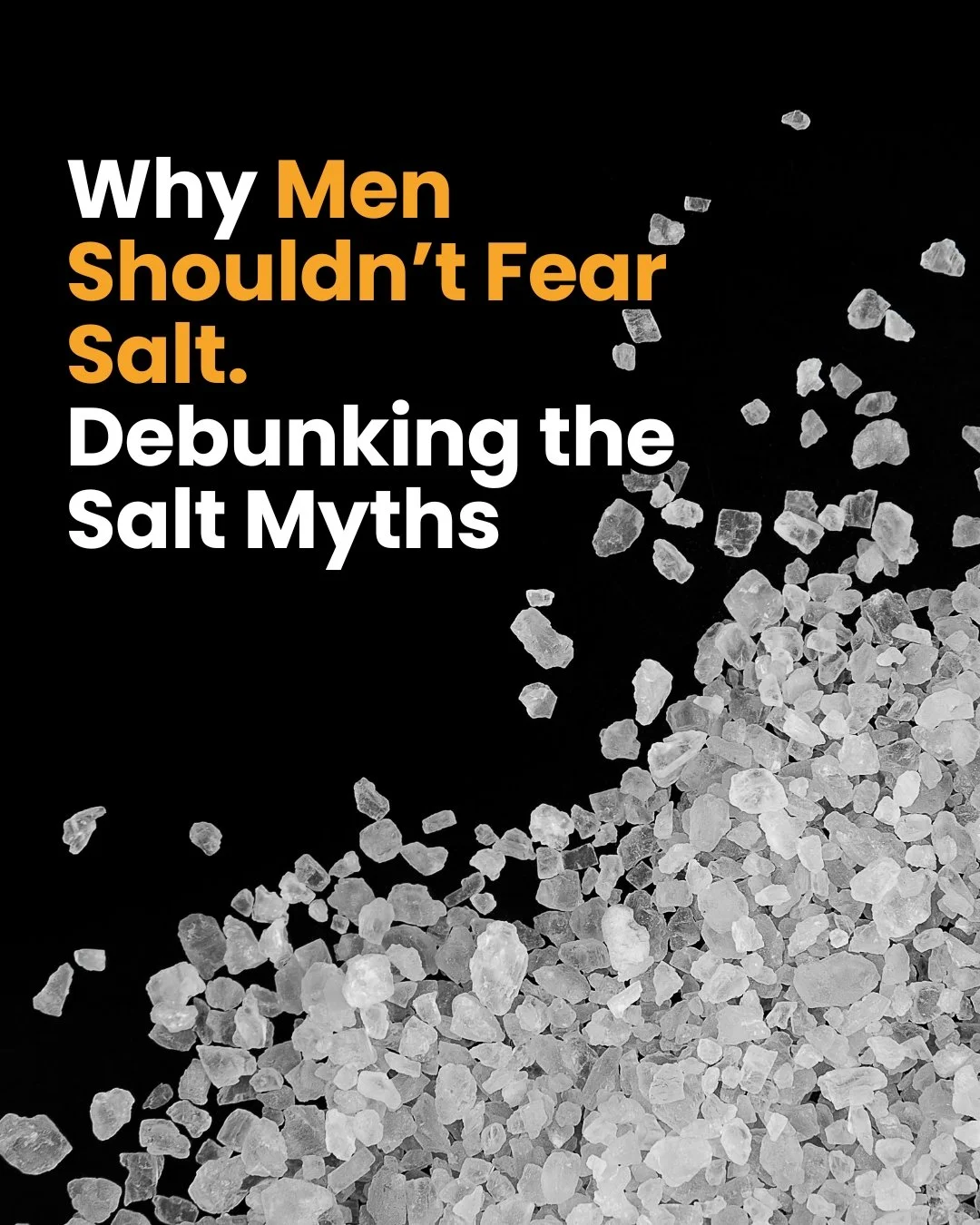
Salt, Science, and Midlife Health: What You Really Need to Know - PART 9
If you’re a man in midlife who’s been diligently cutting salt, only to feel tired, foggy, or flat in the gym, this article is for you. We’ll break down why salt is essential, how to choose the right kind, and why context matters far more than restriction. By the end, you’ll see how salt, used wisely, can actually fuel your energy, improve your workouts, and support long-term health.

Forget Low Salt: Why Men in Midlife Should Focus on Potassium and Magnesium - PART 8
We’ve touched on potassium and magnesium, but let’s drive home their roles in the salt and blood pressure story, because this is where conventional advice truly missed the mark. You shouldn’t think about sodium alone; consider the sodium-potassium ratio and overall mineral intake instead. These ratios may be more significant than the absolute amounts of sodium.

From Keto to Stress: Why Many Midlife Men Need More Salt Than Guidelines Allow - PART 6
Most men in midlife have been told the same thing about salt: eat less, protect your heart. But the truth is, salt needs aren’t one-size-fits-all. In fact, depending on your diet, lifestyle, and health, you may actually need more salt than mainstream guidelines recommend.
If you’re following a low-carb diet, training hard, working a physical job, drinking a lot of coffee, under high stress, or sweating buckets in the sauna, cutting salt can leave you feeling weak, dizzy, or constantly fatigued. For some men, it can even make blood pressure and heart health worse, not better.
This article breaks down the real-life scenarios where men in midlife need extra salt to perform, recover, and feel their best, and why blindly following the old “less salt is healthier” message could be holding you back.

The Real Deal on Salt: Why “Balancing” is Better Than “Restricting” - PART 5
For many midlife men, a rigid 1500 mg limit could be unnecessarily low and make it hard to stay hydrated and energised.
Another issue is that focusing on a single number ignores context; getting 3,000 mg of sodium from a fast-food burger meal full of trans fats is not the same as sprinkling 3,000 mg worth of mineral-rich sea salt on home-cooked veggies and lean protein.
The source and context matter, but current RDAs don’t distinguish these nuances.

Why Your Doctor Still Thinks Salt Is Bad (And Why He Might Be Wrong) - PART 4
With such compelling evidence piling up, one might wonder: Why do mainstream organisations still tell us to restrict salt so much? There are a few reasons the “salt is evil” narrative persists in conventional guidelines, despite the evolving science:

New Research Exposes the Salt Myth: What Science Really Says About Salt and Health - PART 3
If the historical evidence for salt reduction was flimsy, what does more recent, comprehensive research tell us? In the past 10–15 years, a wave of studies, from large epidemiological analyses to systematic reviews, has challenged the simplistic “salt = hypertension = heart disease” narrative.
These findings reveal a far more complex picture in which moderate salt intake is often harmless (or even beneficial), and both extremely high and extremely low intakes can be problematic. Let’s break down some key insights from modern research:

How Salt Got Its Bad Reputation: A Brief History of the “Salt = High Blood Pressure” Myth - PART 2
The idea that salt is inherently bad for your heart has been repeated so often that it’s taken as gospel. But where did this salt-phobia originate? It turns out the evidence was shaky from the start, relying on extreme experiments and misinterpreted data that became entrenched in policy before the science was settled.
Understanding this history will reveal how we ended up vilifying salt in the first place.

Why Men Shouldn’t Fear Salt: Debunking the Salt Myths - PART 1
I can’t tell you how many times a client has sat across from me and said, “I know I should be cutting back on salt, my doctor told me it’s bad for my heart.”
Here’s the problem: they’ve been fed a lie.
For decades, men like you and me have been told that salt is the enemy. That it clogs our arteries, drives up our blood pressure, and sets us on the fast track to a heart attack or stroke.
Out of fear, many of us dutifully cut back, pushing bland meals around our plates, convinced we’re doing the right thing for our health.
But what if everything you’ve been told about salt was wrong?

Butter: The Nutrient-Packed Superfood Men in Midlife Need
For years, we’ve been told that butter is bad for us. That it clogs arteries, raises cholesterol, and should be swapped for so-called "heart-healthy" spreads. But what if I told you that butter is actually one of the healthiest fats you can eat? And that the alternatives we’ve been sold are the real problem?
I know this because I grew up on a dairy farm. My grandmother churned butter straight from fresh, raw cow’s milk. The rich, creamy taste was unlike anything you’ll find on store shelves today.
We ate it every day—on potatoes, vegetables, rice, and steak.
And guess what?
No one was scared of butter.
No one was terrified of cholesterol.
And people weren’t dropping dead from heart disease at the rates we see today.
